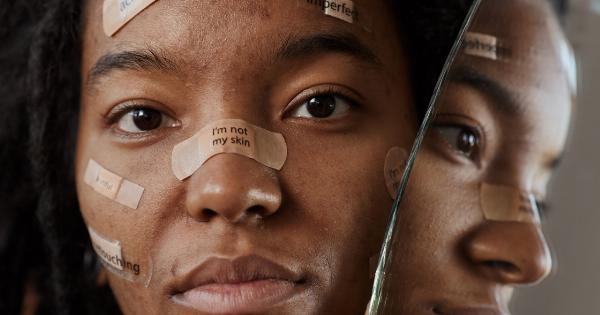Acne is a common skin condition that affects millions of people worldwide.
It is characterized by the presence of blemishes such as pimples, blackheads, and whiteheads, which can appear anywhere on the body but are most commonly found on the face, chest, and back. While acne is often associated with puberty, it can affect people of all ages and can be caused by a variety of factors.
Hormonal Imbalances
Hormonal imbalances are one of the primary causes of acne. During puberty, the body undergoes significant hormonal changes, which can result in oil glands producing excess sebum. Sebum is an oily substance that helps to lubricate and protect the skin.
However, when too much sebum is produced, it can mix with dead skin cells and bacteria, clogging pores and causing acne.
Other hormonal changes, such as those experienced during menstruation and pregnancy, can also trigger acne.
Women who have polycystic ovary syndrome (PCOS) are particularly susceptible to hormonal acne, as this condition causes elevated levels of androgens (male hormones) which can lead to excessive sebum production.
Genetics
Acne can also be caused by genetics. If one or both of your parents suffered from acne, there is an increased likelihood that you will too.
Certain genetic factors can also influence how your skin responds to hormonal changes, making you more susceptible to acne breakouts.
Hygiene
Poor hygiene can also contribute to the development of acne. Failure to wash your face regularly or using dirty makeup brushes can lead to the buildup of bacteria and oil on the skin, increasing the likelihood of clogged pores and breakouts.
Similarly, wearing tight clothing or using heavy backpacks or equipment can cause friction on the skin, leading to irritation and breakouts.
Lifestyle Choices
Lifestyle choices can also play a role in the development of acne. For example, consuming a diet high in sugar and refined carbohydrates can trigger an increase in insulin levels, which in turn can lead to excess sebum production and acne.
Smoking cigarettes can also increase the risk of acne, as nicotine and other chemicals in tobacco can irritate the skin and lead to inflammation.
Managing and Preventing Acne
While there are various causes of acne, there are also many ways to manage and prevent breakouts. Here are some tips on how to keep your skin clear:.
1. Establish a consistent skincare routine.
Wash your face twice a day with a gentle cleanser to remove dirt and oil buildup. Avoid using harsh scrubs or toners, which can irritate the skin and cause inflammation.
Don’t forget to moisturize, as this helps to prevent dryness and can actually reduce oil production.
2. Use non-comedogenic products.
Look for skincare and makeup products labeled “non-comedogenic,” which means they are less likely to clog pores and cause breakouts.
3. Practice good hygiene habits.
Wash your hands frequently and avoid touching your face, as this can transfer bacteria and oil onto the skin. Use clean towels and washcloths, and wash your pillowcases and sheets regularly to reduce the buildup of oil, dirt, and bacteria.
4. Eat a healthy diet.
Reduce your intake of sugar and refined carbohydrates, and choose foods rich in vitamins and minerals, such as fruits, vegetables, and whole grains. Drink plenty of water to help flush out toxins and keep your skin hydrated.
5. Manage stress.
Stress can trigger hormonal imbalances and lead to acne breakouts. Practicing relaxation techniques such as meditation, yoga, or deep breathing can help to reduce stress levels and improve overall wellbeing.
When to Seek Professional Help
If you are experiencing severe or persistent acne, or if your acne is causing scarring or affecting your self-esteem, it is important to seek professional help.
A dermatologist can help to diagnose the underlying cause of your acne and can recommend effective treatment options, such as topical or oral medications, laser therapy, or chemical peels.
By understanding the various causes of acne and implementing these tips for prevention and management, you can achieve clear, healthy skin and boost your confidence and overall wellbeing.






























